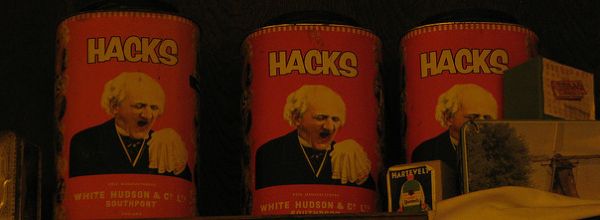If you’ve become interested in studying the regulation of a new human protein, you’ll probably need a new antibody. Or maybe your current assay isn’t working and you suspect that your antibody could be at fault? In either situation, choosing a new antibody from the plethora available is probably high up on your to-do list.
But How Do You Cherry Pick That Antibody?
As of yet, there are no quality regulations in place for research antibodies. Consequently, the market is flooded with antibodies that do not recognize their supposed target at all, antibodies that cross-react with off-target proteins, or those that work but only under very specific conditions.
When selecting an antibody there are a few things to consider; your PI will probably tell you that the right price is imperative, but repeating an experiment and buying a second or even third antibody because you got it wrong the first time around is going to cost you much more than getting it right from the get go.
Here’s where a bit of antibody know-how comes in. Rather than sending you to root through your undergrad immunology notes, this list offers you a quick step-by-step guide to help get your assay off to a bright start.
Decide on Your Target
The first place to start is your target. Ask yourself the following questions:
- What protein do you want to identify?
- Does it have to be the whole protein, or perhaps a specific section such as the C-terminus?
- Do you want to detect a modified version of the protein such as a phosphorylated or ubiquitinated form?
For some targets you might be spoilt for choice, while for others you may only have one or two options. If you are really struggling to find an antibody for your target, you might have to consider a custom-made antibody to achieve your results.
Most antibody suppliers offer custom-made antibody services, differing depending on the starting point. Whether you need peptide (epitope) design and synthesis, or whether you have the target protein purified in high quality, there is a range of options available to immunize animals, collect serum and purify the antibodies to suit your needs. So rest assured – there is bound to be an excellent antibody out there for any target you might have, you just need to know how to find it!
Primary Antibody Species Specificity
It goes without saying that if you are working with human cells, your antibody must recognize the human target protein. Likewise, if you are working with a mouse model your antibody must be murine-reactive. Get this part wrong and you could be looking for yet another new antibody very soon!
Make sure to carry out your own antibody validation to ensure that the antibody is reactive with your species (mouse, human etc.). Use an antibody validation protocol to confirm target specificity and affinity in the intended applications for the antibody, as well as the robustness of this antibody in repeated experiments.
Polyclonal or monoclonal primary antibody?
Now you can start to narrow down the options based on your experiment. To identify a weakly-expressed protein, or for western blotting, IHC or IP, a polyclonal antibody might be the best option. These antibodies can bind multiple epitopes on the target protein, thus increasing the detection signal. However, if your target is a conformation-specific epitope or if you plan to use multiple antibodies to identify different targets within one assay, a monoclonal antibody is your best bet, offering increased specificity and lower background.
Is the Primary Antibody Tailor-Made?
You think you’ve found a few good options – now you need to decide which the best choice your experiments. Check the antibody datasheet to see if it has been approved for use in your intended application – remember that an antibody that works in western blotting might not work in flow cytometry or IHC.
Carefully read the antibody validation details reported by the supplier. Did the supplier use a recombinant protein for the validation western blot? If so, bear in mind that antibodies often react differently to cell lysates, and you might not achieve the same clean result as shown in the antibody datasheet.
Ideally, you will have identified an antibody suitable for your technique at this point, but if this is not possible from the selection available, opt for an antibody that works under similar conditions – e.g. an antibody that works in native immunoprecipitation might work in flow cytometry since both of these techniques preserve the native protein structure.
Has the Primary Antibody Been Road-Tested?
Quality citations are important. Check the articles cited on the datasheet. While the antibody manufacturer might include references that mention the use of their antibody, these citations aren’t always good. When you check all of the references, you might see a few poor quality non-convincing images. Citations alone aren’t good enough, quality citations are where it’s at.
Besides what the suppliers tell you, you should do your own antibody research. Always check PubMed to see if people have used the antibody for your application, potentially giving you tips on working dilutions etc. There are a range of additional databases with antibody reviews such as pAbmAbs, Antibodypedia and CiteAab, which compare good antibodies, and where users offer reviews for specific applications that might help you make your final decision.
Do try and make sure though that you obtain the same lot number as used in the citation and reviews. Batch-to-batch variation can be significant and getting hold of a different lot number can result in a markedly different antibody.
Beg, Steal and Borrow a Primary Antibody
Finally, think about the experiments you have planned. If you plan to run a one-off western then do you really need to buy a large aliquot? Could you get away with a cheaper trial size aliquot? Ask the antibody supply companies for discounts and refund guarantees or alternative products in case the antibody fails. If you’re brave enough, you could even ask for a few microliters free of charge. You may not succeed every time, but nothing ventured, nothing gained!
After all that hard work selecting the right antibody always remember to validate it in your own system. Antibody companies do not guarantee that an antibody will work for every tissue type and set of conditions. Unless you are fortunate enough to have someone else prove specificity in the same tissue from the same species under the same experimental conditions, you will have to do this yourself!
Originally published in 2016. Updated and republished in 2017.







